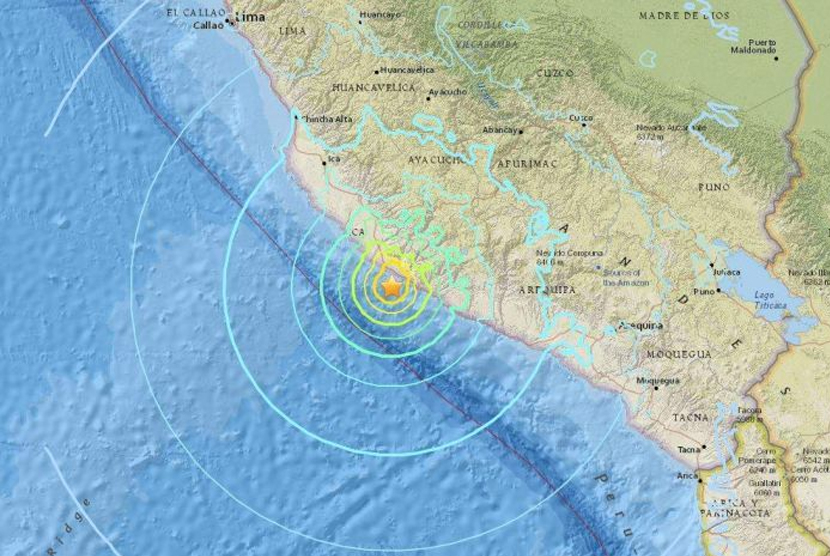REPUBLIKA.CO.ID, LIMA -- Peru will declare a state of emergency in parts of Arequipa, the southern region jolted by a powerful 6.8-magnitude earthquake that hit just after 4 a.m. local time on Sunday.
"We are preparing a decree to declare a state of emergency, to take immediate steps to facilitate the immediate reconstruction of homes and efforts to recover roadways," President Pedro Pablo Kuczynski's chief of staff, Mercedes Araoz, said in the first official report following the quake.
Kuczynski traveled to the disaster site earlier in the day to see the extent of the damage firsthand.
Peru's Geophysics Institute (IGP) said the 6.8-magnitude quake hit off the coast of Arequipa at 4:18:42 a.m. local time, and at a depth of 48 km. The U.S. Geological Service (USGS) said the quake measured 7.1 on the Richter Scale of seismic intensity.
"The 6.8-magnitude earthquake with an epicenter in Arequipa was also felt in (the capital) Lima, Ica, Ayacucho and other cities," national news website Andina said.
While the quake sparked waves of up to 7 meters high along the Arequipa coastline, officials said there was no threat of a tsunami.
The government confirmed one person died as a result of the quake and 42 others were injured as dozens of homes collapsed.
The fatal victim was crushed to death after loose rocks fell on his adobe home in the district of Yauca, Peru's National Emergency Operations Center (COEN) said.
Several primary roads, including the Panamericana Sur, or South Pan-American Highway, sustained damage, temporarily blocking or restricting the flow of vehicles, and electricity was disrupted in a few communities.
Accompanying Araoz were other members of Kuczynski's cabinet, including Health Minister Abel Salinas, said the injured were receiving prompt treatment, mainly for bruises.
Two minor aftershocks, measuring 3.8 and 3.7, followed some four hours after the first quake.
The last major earthquake to hit southern Peru, including Arequipa and its surroundings, was a destructive 8.4 that hit June 23, 2001, killing some 150 people and injuring nearly 3,000. As many as 22,000 people were left homeless.
The Nazca and South American plates meet below this part of Peru, causing seismic activity.


